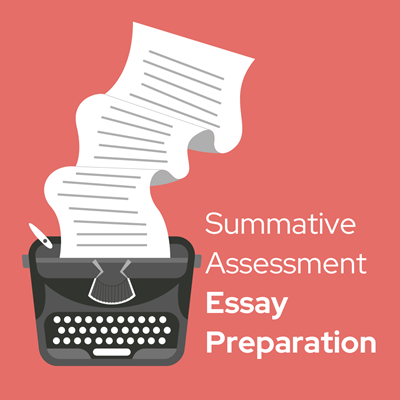Summative Assessment: Essay Preparation
A free professional blog to support English teachers

As the school year progresses, students find themselves facing the intimidating challenge of summative assessments. These evaluations, especially in the form of essays, demand more from your students than a good memory — they require critical thinking, effective communication, and planning. To help students navigate this crucial phase successfully, we've put together a guide to help you prepare them for summative assessments that involve essay writing.
Understanding Summative Assessment
A summative assessment is a culmination of a student's learning over a specific period, usually marking the end of a unit or course. We have a specific blog post on Summative assessment which you can find here. Essays are a common format for summative assessments, assessing students' understanding of concepts, analytical skills, and ability to articulate their thoughts.
Key steps to help guide your students through Summative Assessment Preparation
- Review the topic with them: Before diving into essay preparation, carefully review the assessment guidelines with your students. It is important to help them understand what the essay should be about, how you will be marking their essay and any specific expectations regarding structure, formatting, and references.
- Help them understand the Essay question: Encourage your students to break down the essay question into the key concepts. Identify the main question, any sub-questions, and the theme of the essay. This will guide their research and stay focused on the central theme.
- Encourage them to do lots of research: Gather relevant information from reliable sources to support your arguments. Use a combination of textbooks, academic journals, and reputable online resources. Take notes on key points, quotes, and references that you can incorporate into your essay.
- Create an Outline: Show your students how to plan their essays, create an outline and organise their thoughts. Remember a well-organised essay typically includes an introduction, the main body, and a conclusion. Encourage them to outline the main points they want to cover as well as the supporting evidence in their plan.
- Drafts and proofreading: One of the great things about setting an essay as an end-of-unit assessment is that your students have time to research and refine their answers. Encourage them to leave time at the end of the assessment to rewrite sections if needed and remind them that proofreading is important to check for spelling or grammatical errors.
Key takeaways to prepare your students for summative assessment: essay success!
(You can print these key points out or write them up for your students to copy)
- Break down the essay question and identify the main theme.
- Conduct comprehensive research using reliable sources.
- Create a well-organised outline to guide your essay.
- Build coherent body paragraphs each with a strong topic.
- Cite sources properly using the specified citation style.
- Craft a thoughtful conclusion that summarises key points.
- Allocate time for thorough revision and proofreading.
By following these steps, students can approach summative assessments with confidence, knowing they have a solid plan for essay success. Remember, preparation is the key to performing well under the pressure of summative assessments. Good luck!
Read more blog posts from The English Classroom here and be sure to sign up for our English teaching resources here. We will also send blog posts directly to your email.
Written by Rebecca Sparling